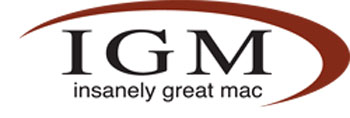Apple's 802.11g takes Advantage of Explosive Wi-Fi Growth
January 19th 2003
Hot on the heels of Apple's January 7 introduction of Airport Extreme - aka Airport Extreme - comes the news that Wi-Fi shipments have achieved "staggering" growth.
Sales were an estimated $1.8 billion last year, compared with $527 million in 2000, based on a report published by Synergy Research Group, says an article at Recordnet.com.
15.9 billion wi-fi units and components were sold in 2002, almost double the 8 billion sold the previous year. In 2000, shipments were a mere 2 billion. Apple introduced its Airport-ready iBook in late 1999, having preannounced its support for the techniology at MacWorld New York in Julu '99.
A key factor behind the growth in popularity of Wi-Fi is its plug-and-play nature. With a range of 150 feet and 11Mbps speed (54Mbps with Airport Extreme(, Wi-Fi is an attractive and inexpensive alternative to a home or business hardwired ethernet network.
Apple retails its Airport Extreme card for $99 ($79 for the 11Mbps card) and with some models it's bundled. An Airport Base Station costs $249, although cheaper, compatible third-party access points are available, along with a $199 Airport Base Station without modem or antenna port. The latter works with the new 54Mbps standard [Article updated to reflect revised models and prices].
Wi-Fi can also be retro-installed easily on older computers. All PowerBooks made since 1994, except the Duo 2300, can accept a third-party PCMCIA wireless card using the 11Mbps 802.11b standard. Most CRT iMacs also have an internal Airport slot.
Security issues are a concern, with Wi-Fi 'packets' susceptible to interception, but most home and office installations usually bundle some security provisions into the price. More recent incarnations of Wi-Fi have used increased levels of encryption to protect transmitted data.
Analysis: Guess I picked the wrong week to invest in 5 miles of Cat5 cable.
